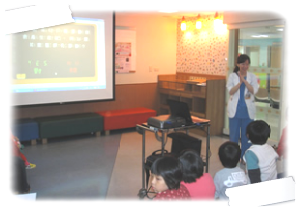Chuang Gung Medical Foundation, Division of Pediatric Allergy, Asthma and Rheumatology - UNREGISTERED VERSION
Main menu
Fellowship Training Program
Fellowship Training Programs
Division of Allergy, Asthma and Rheumatology Chang Gung Children's Hospital
Mar. 28, 2013
Chih-
Training Objective:
The Division of Allergy, Asthma and Rheumatology of Chang Gung Children's Hospital in co-
Fellows are demanded to publish at least one original article in SCI journals. Fellows have to present their research in domestic annual conference twice a year. They also have opportunity to join international conference at least once during the training period.

Clinical Training:
There are over 50,000 outpatient visits per year in the Division of Allergy, Asthma and Rheumatology for learning demonstration. The Pediatric Allergy and Asthma Center and the Children's Hospital provide well-
A. Examination, diagnosis and therapy for allergic diseases:
1. Upper airway diseases: The fellows will learn the techniques and diagnostic knowledge of rhinitis, sinusitis, otitis media, tonsillitis, etc. Skin allergic tests, immunotherapy, smearing of nasal discharge and sputum, physical examination, x-
2. Diagnosis and therapy for allergic conjunctivitis, viral and bacterial conjunctivitis.
4. Lower respiratory tract diseases: The fellows are required to understand thoroughly diseases such as asthma, allergic pneumonitis, bronchiolitis, Immotile cilia syndrome, bronchiectasis, bronchiolitis obliterans, vascular ring-
5. Food allergy: including food challenge test.
6. Diagnosis and therapy of anaphylaxis, oral allergy syndrome.
7. Exhaled nitric oxide concentration measurements and its correlation with asthma and pneumonia as well as its role as a biomarker for airway inflammation.
B. Rheumatology:
To learn the fundamental knowledge for all kinds of arthritis (including inflammatory, [juvenile chronic idiopathic arthritis (JIA), spondyloarthropathy, psoriatic arthritis], reactive arthritis, systemic lupus erythematosus (SLE), juvenile dermatomyositis, vasculitis syndrome, mixed connective tissue disorder, hence, the fellows will have the ability of diagnosis and therapy to pick up the skills of microscopic capillary change, Schimer test, saliva production test, intra-
C. Diagnosis and therapy for Immunodeficiency (ID): The fellows will study the following:
1. Primary ID including severe combined ID (SCID), DiGeorge syndrome, adenosine deaminase deficiency(def), nucleotide phosphorylase def., ataxia telangiectasia, Wiskott-
Research in Basic Science:
Under the clinical superiority of Chang Gung Children’s Hospital, the Division has developed lots of projects for research activities in the fields of immunology and molecular biology, and has also undertaken multi-
A. Immune mechanism: the field relates to
1. Preparation, characteristics and structures of anti-
2. Functions, adjustment, and structures of MHC;
3. Immunogenetics;
4. Immuno-
5. Structures, and functions of T-
6. Structures and functions of complement.
B. The growth and development of immune systems.
C. Immunomodulation with reference to
1. Molecular biology, preparation, functions and adjustment of cytokines;
2. Inflammatory mediators, such as leukotrienes, prostaglandin, platelet-
D. Immune reactions, with reference to the conversion and reaction of IgE in causing sickness; conversion reactions of IgG, IgA or IgM; conversion reactions of immune complexes; and mechanism by complements and the role of natural killers.
E. Laboratory research work: each fellow is required to work on at least one lab program for the understanding of the fundamentals of immunology and the comprehension of clinical activities. The research items may be selected from the following list: Immuno-
1. ELISA, RIA, RID, immunoblots, high performance liquid chromatography (HPLC), protein analysis;
2. flow cytometry, chemotaxis, phagocytosis, cytolysis, lymphocyte proliferation, Ig production;
3. immunofluorescence;
4. Northern, Southern, Western blotting,
5. polymerase chain reactions;
6. hybridomas and monoclonal antibodies production.
7. animal models for asthma and other allergic diseases.
Clinical Activity:
All fellows must participate in ward round, journal meetings, research seminars, case conference, and clinic activities.
Ward round: daily ward round with attending physicians.
Journal meeting: held with adult Allergy/Rheumatology department twice every month. Fellows will take turn presenting recent scientific findings related to allergy, immunology, and rheumatology.
Research seminar: in cooperation with faculty from the Research Institute of Chang Gung University, the attending physicians and fellows will present their recent progress in research as well as obstacles encountered.
Case conference: held every 2 months. Fellow 1 will present special case along with other cases from medical centers and hospital in the Great Taipei area.
Education Activity:
Fellows are responsible to cover junior resident, interns and medical students to take care of in-
patient in our division. Daily teaching round will be held to discuss diagnostic techniques, treatment strategies, and other clinical and basic knowledge. Fellows should also be a presenting speaker in community or school setting to teach all asthma care knowledge to the public.
